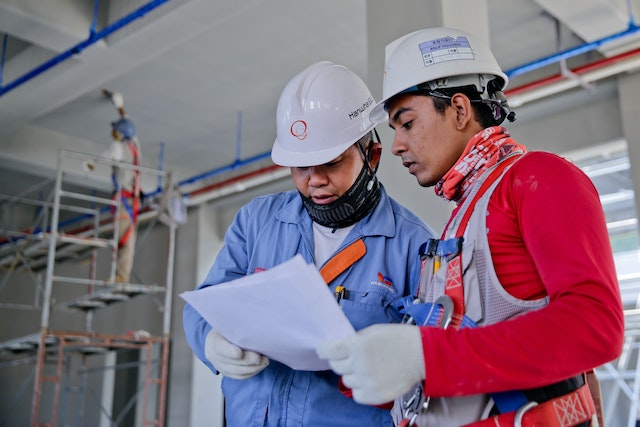- Legal compliance in construction involves licensing, permits, comprehensive contracts, and the correct insurance coverage.
- Understanding employment laws, including regulations on wages, safety, and discrimination, safeguards your business.
- Providing employees with appropriate benefits and leave is also essential to legal compliance in construction.
- Tax law adherence is critical to avoid costly penalties and disputes; professional accounting help can be beneficial.
This is a contributed post and do not necessarily reflect the opinions of Meet The Harris Family.
Legal issues can be a significant burden when running a construction business. With various regulations and compliance requirements, it is easy to get lost in the legalities and lose focus on your business objectives.
This blog will discuss the essential things you need to know to ensure your construction business operates legally and successfully. By the end of it, you will better understand what you need to do to manage the legal aspects of running a construction business.
Licensing and Permits
To operate a construction business, you must have a valid license and all necessary permits. Before starting any project, ensure you have your region’s appropriate licenses and permits. Failing to obtain proper licensing and permits can result in hefty fines, lawsuits, and even your business’s shutdown. Therefore, it is wise to keep your licenses and permits active and updated.

Contracts
As a construction business owner, you must understand the significance of a comprehensive contract. A contract outlines the terms and conditions of the project, clarifying essential details such as work timelines, scope, costs, and any potential risks associated with the job. A well-prepared contract can prevent possible litigations and provide a foundation for a better relationship with the client.
If you do not have legal experience, you should seek the help of an experienced construction law attorney. They can draft a comprehensive contract for your business needs and ensure that everything is in accordance with the law. They can also help you in the event of litigation by providing you with the legal guidance you need.
Insurance
Having the right insurance coverage is vital. It offers your business risk protection against property loss, injuries, and any other liabilities. Make sure that you obtain coverage adequately addressing potential issues to avoid losses that could bankrupt your business. Insurance can also provide peace of mind and improve your reputation in the industry. You can add endorsements to your policy as you go, depending on the type of project and client requirements.
Employment Law
Adhering to employment law is another crucial aspect of running a construction business. Employment law encompasses many different aspects you need to be knowledgeable about. Such aspects include the following four:
Wages and hours
Wages and hours regulations require employers to pay their workers in accordance with applicable laws. These laws ensure that employees are paid the minimum wage, given overtime when due, and provided with accurate records of wages earned.
Safety

Employers must provide safe working conditions for all employees according to safety laws. This includes providing protective equipment, preventing hazardous environments, and ensuring that all equipment is operated by qualified personnel.
Discrimination
Discrimination laws shield employees from any type of discriminatory behavior based on age, gender, religion, and other protected characteristics. Employers must ensure that they do not discriminate against any employee for being a member of one of these classes.
Leave and benefits
Employment law also requires employers to provide workers with necessary leave and benefits. This may include paid leave, vacation time, health insurance coverage, disability benefits, and more.
Understanding these employment laws is essential to running an effective construction business. Ignoring legal requirements can lead to costly disputes and other legal issues that can ruin your reputation in the industry. Therefore, it is best to consult a qualified lawyer to ensure your business complies with all employment laws.
Taxes
Finally, you must stay compliant with the applicable tax laws. Depending on your business’s structure, you may have to collect and remit taxes such as payroll taxes, sales and use taxes, or income and franchise taxes.

Paying attention to the various tax requirements can help prevent costly penalties and disputes down the line. You should also consider hiring a professional accountant to help you manage your taxes.
Running a successful construction business is not just about delivering high-quality projects; it also involves the intricate navigation of legal requirements, including licensing, contracts, insurance, employment laws, and taxes. Staying compliant with these aspects is no small feat, but it can be manageable with the proper guidance and resources.
If you’re unsure about legalities, it’s always wise to consult with professionals in the field. Remember, it’s better to invest time now to understand these elements than to face potentially costly legal obstacles down the road. Let this blog serve as the foundation of your understanding, but continue to seek updated information and advice regularly to keep your construction business legally sound and successful.


